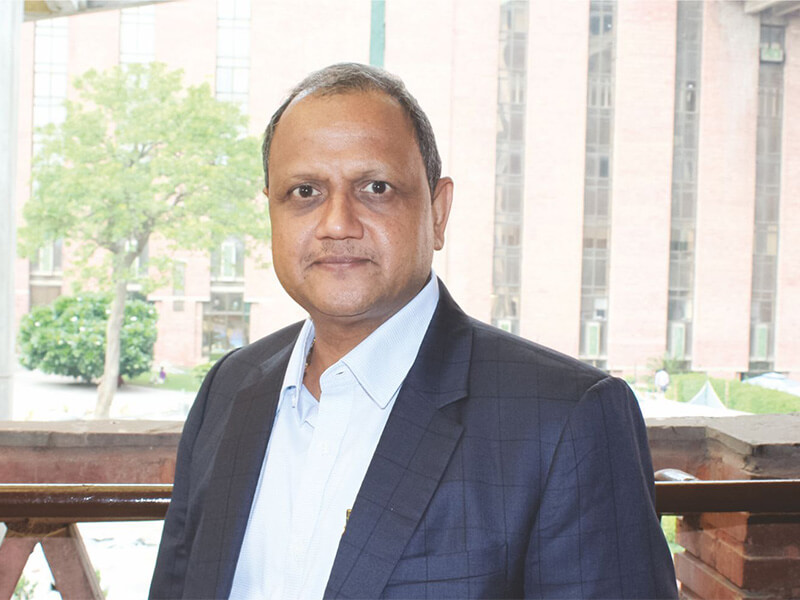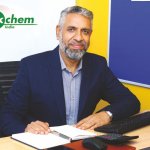Elof Hansson AB is a global business facilitator for buyers and sellers in the segments of pulp, paper, and timber. In an interview with Paper Mart magazine, Mr. Nandkumar D. M., President, Elof Hansson (India) Pvt. Ltd., talks about the products & services for the pulp & paper industry and the solutions provided by the Company.

Paper Mart: Please tell us about the Elof Hansson Group and its operations in the Indian paper industry.
Nandkumar D.M.: The Elof Hansson Group is a Swedish firm that has completed 125 years of trading forest, industrial, and consumer products across the world. The head office is in Gothenburg, Sweden. In India, our main office is in Chennai and branch offices are in Delhi & Mumbai.
In the paper industry, the major business is Pulp and Paper trading. We also specialize in supplying machinery components, laboratory equipment, and quality testing instruments from Frank-PTI and IGT instruments for printability testing of Paper boards. We also offer AMC services for these instruments.
We also undertake projects, especially white liquor oxidation and NCG/SOG systems, in technical collaboration with Lundberg LLC, USA. To summarize – we are a trader in the pulp & paper segment and we also sell machine components, services, projects, and chemicals.
Watch: IVAX Paper Chemicals Interview
PM: What trends have you seen in the Indian paper industry after the COVID-19 pandemic?
NDM: The COVID-19 pandemic has been great learning for the paper industry, especially in the areas of resource management, product marketing, and manufacturing process. As expected, the paper industry has taken a V-shaped recovery since the pandemic. In just a couple of years, the industry is at the same production level as it was in the pre-COVID era. Besides, the industry is growing at a CAGR rate of 6 percent. While the demand for the writing & printing paper segment is lower, the packaging and tissue sectors’ growth rate is above average.
PM: Have you noticed any change in the mindset of the paper mill owners with regard to technological advancement?
NDM: Technology should be in the mindset, not just the product. To optimize the process, improve operating efficiencies & operating profits, paper mills need to adopt the latest technology for manufacturing and process control. Automation is the keyword. Measure-Analyze-Automate is the way forward for Industry 4.0.
PM: Energy is a key area that is crucial for not only the paper but every industry. What kind of solutions is being provided by Elof Hansson in this regard?
NDM: We have developed polyamine-based boiler water treatment products. Traditionally, phosphate-based products have been used for such applications for the past decades; however, amine-based products are more user-friendly and provide benefits to the customer with energy savings. It reduces the blowdown by almost 50 percent more than conventional chemicals. This gives huge energy savings in the boilers and turbines. This is one of the steps, where we are working for energy conservation.
“Technology Upgradation is the keyword. We need to adopt new technology to optimize process parameters.”
PM: Elof Hansson represents 15 + principles. What advantage does it give to the company?
NDM: We have a wider product portfolio and we are operating in various sectors such as pulp & paper, cement, petrochemicals, sugar etc. We have been successful in Chemical sales in Asian countries. Plans are on the anvil to start marketing in the Middle East and African counties.
Also Read: Elof Hansson AB, Sweden: The Global Business Facilitator
PM: What is your outlook on the Indian paper industry?
NDM: As of today, the prospects for the paper industry look very bright. The challenges faced by the paper industry today, are the same as the challenges faced by the industry many years ago such as raw material shortage, utilities etc. However, despite all the odds, the industry has improved tremendously in the manufacturing process, technology, volume, and product quality as per international standards. Indian paper industry is ranked 5th on the world map. This was possible by constantly updating and adopting the latest technology for the manufacturing process.



